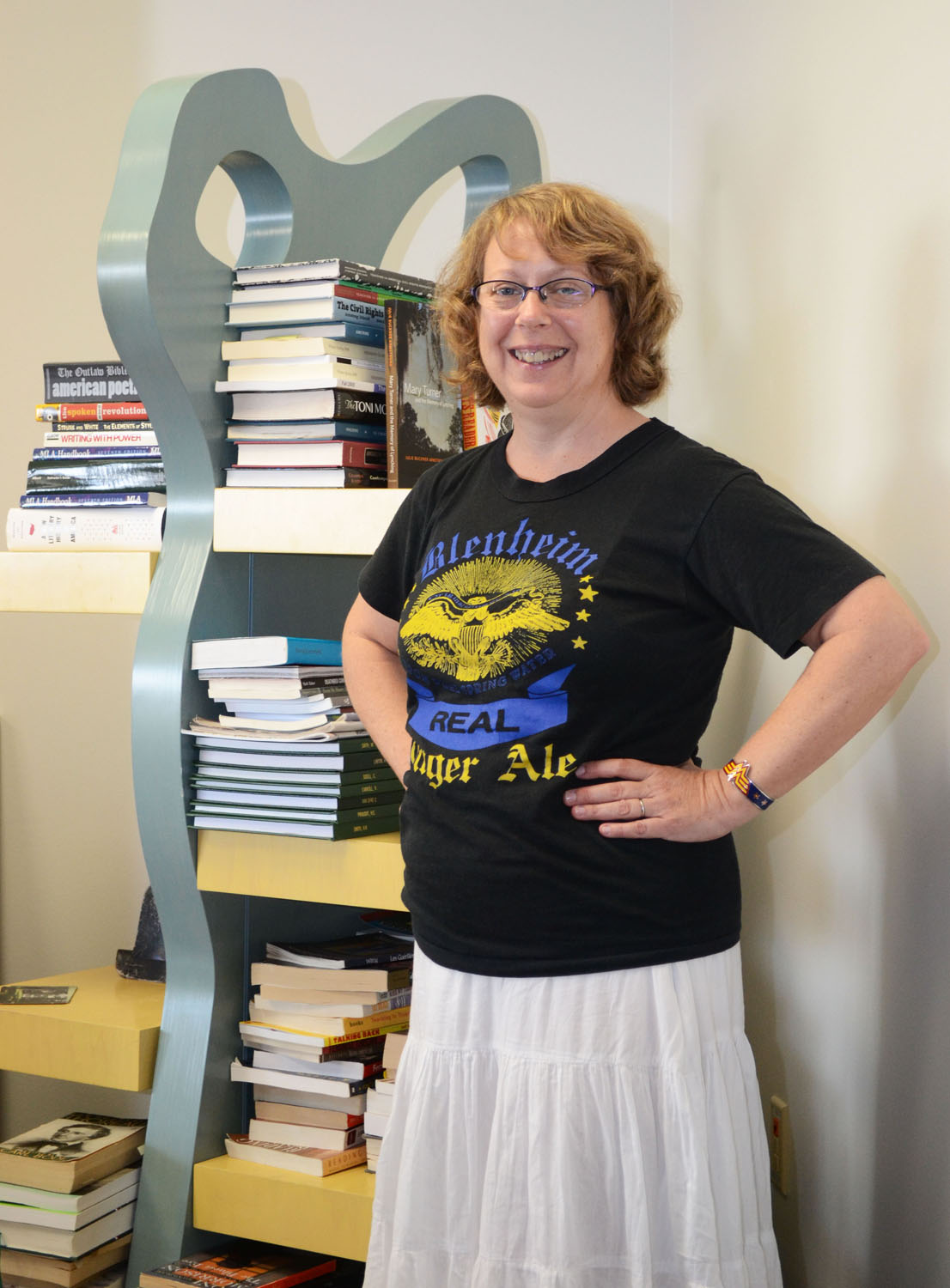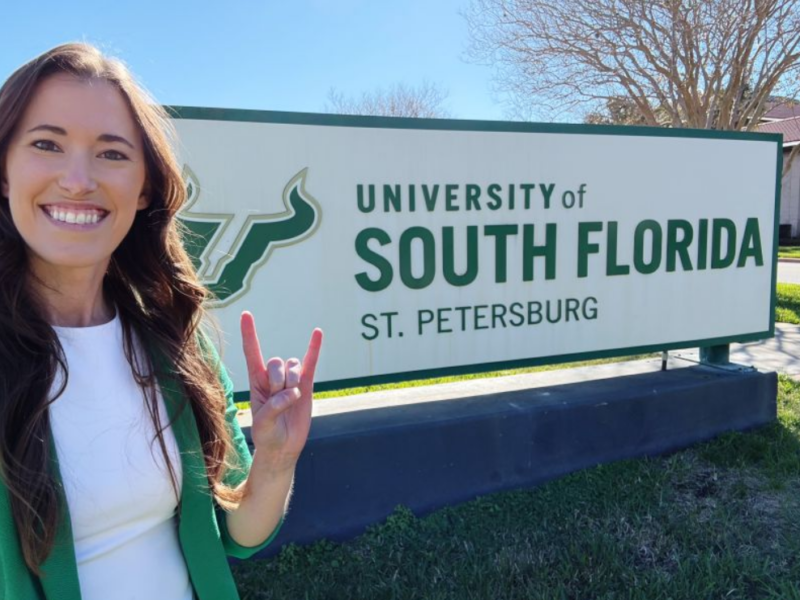Julie Buckner Armstrong is a writer by nature. From journaling through her teen years to the release of her book “Mary Turner and the Memory of Lynching”—13 years in the making—the USFSP associate professor of English has a knack for the written word.
This year’s St. Petersburg Times Festival of Reading on Sat., Oct. 22, will be her first time at the festival as a festival author, “not a volunteer.”
Her personality shines like the Wonder Woman bracelet she wears. Seated at her desk in the newly renovated Harbor Hall, she is surrounded by colorful décor, an old Dalí museum bookshelf. On the windowsill sit two Barbie dolls from the late 1960s. Armstrong keeps her childhood dolls in her office because “Barbie is the perfect thing for a women’s lit teacher to have,” she said.
Armstrong is from Birmingham, Ala. “You’re just exposed to [civil rights issues] a lot,” she said of living in Birmingham. “There is either a hyper interest or you avoid it entirely.”
Armstrong began research on her latest book, “Mary Turner and the Memory of Lynching,” in 1998, when she started her first job after earning her doctoral degree at New York University. She was teaching at Valdosta State University in Georgia and read about the lynching of a woman in 1918 in one of the books for the National Endowment for Humanities Institute on teaching the Civil Rights Movement. She discovered there was nothing on the incident at the local level.
“It is a taboo subject [in Valdosta]. It was one of those traumatic things that happened locally that nobody wanted to talk about,” Armstrong said.
She researched the topic at the Library of Congress, scouring through NAACP investigative files and newspaper clippings. She ventured through documents at Howard University, the Beinecke Library at Yale University and examined the James Weldon Johnson papers, which is a collection of material related to early 20th century African-American writers, she said.
“It was really interesting because it was about the lynching of a woman, and you usually don’t hear about those kinds of stories,” Armstrong said. “It was a very horrific case, and it happened very close to where I lived at the time.”
Armstrong learned about the oral history of the lynchings while teaching Civil Rights Literature, African-American literature and women’s literature courses at Valdosta State.
“I had no idea how to be subtle,” Armstrong said about conducting her research on the oral history of the lynching. “I marched into the historical society demanding to know ‘about the woman who was lynched here in 1918’.”
“It never occurred to me people wouldn’t talk about their little dirty secret,” she said.
Some change came about in Valdosta, Ga. There was a commemoration ceremony in 2009, where many people talked publicly about the lynching stories, which Armstrong said was “an amazing thing.”
“Nobody ever really talked to me. That wound is too painful. They don’t want to go there,” Armstrong said. She did not include oral history in the book, but she did include a few stories from the commemoration ceremony and off-the-record stories from a few Caucasian women.
A group called the Mary Turner Project established a historical marker in Valdosta, Ga. in 2010.
Armstrong’s current project, tentatively named “Birmingham Stories,” will be a collection of essays about civil rights.
“I’ve done some creative writing before, but not book-length. This is my fourth project, so I have more freedom,” Armstrong said. “I’m just tinkering with stuff right now. My goal is not to be quick. My goal is to be excellent.”
Photo by Daniel Mutter



